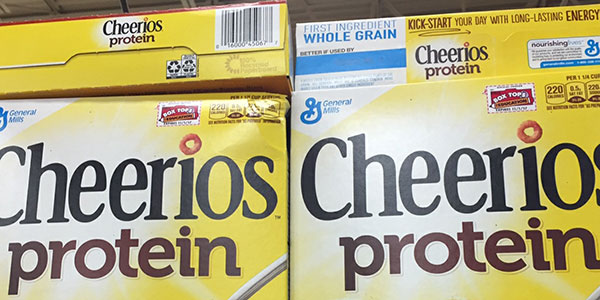Did you catch the Cheerios Protein whoopla last week? It’s prompting a lot of discussion on what is fair play when it comes to marketing claims and labeling.
It’s no secret. Consumer goods companies want to keep pace with consumer lifestyle trends. In response to high-protein-diet trends, General Mills developed Cheerios Protein. The cereal is marketed as a “high protein, healthful alternative to Cheerios,” and claims to have over twice the protein.
But as Cheerios learned, there’s a limit to how far you can go. The non-profit consumer advocacy group the Center for Science in the Public Interest (CSPI) is calling foul play. In its class-action lawsuit, the group challenges the claim that the new cereal contains twice as much protein as the original.
As it ends up, CSPI is correct. On the label, nutritional information for the two types of Cheerios is based on different serving sizes. A little re-calculating (to compare apples to apples) brings the newer, more expensive protein cereal in at having less than 25% more protein. It also contains a whopping 18g of added sugar. Ouch.
One could argue that General Mills is following best business practices. Identify trends. Satisfy emerging consumer preferences. Put your best foot forward. Beg forgiveness if you cross a line. On the other hand, you could argue it shows a lack of respect and concern for consumers in the name of winning wallet share.
At Conscious Eater, we think this story sheds light on a bigger issue. If infusing foods with protein and sugar is how food manufacturers compete in today’s world, what does that say about the trust we place in companies? Can we rely on them to guide us to what is truly healthy?
Think about it.

